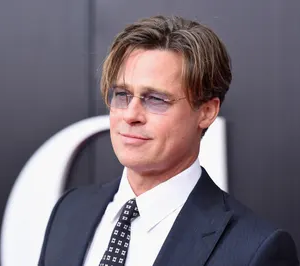Prince’s Health and Wellness: How He Maintained His Energy on Stage
When it comes to legendary performances and electrifying energy, few artists have matched the late, great Prince. Known for his dynamic stage presence, breathtaking vocals, and seemingly endless stamina, Prince’s ability to captivate audiences for hours on end was truly iconic. But what was the secret behind his high-energy performances? How did Prince maintain his health and wellness to deliver such unforgettable shows night after night? Let’s dive into the wellness routine that fueled the Purple One’s legendary career.
The Prince Wellness Blueprint: Fitness as a Foundation
Prince was not just a musical genius; he was a fitness enthusiast who understood that physical health was crucial to sustaining his demanding performance schedule. Reports reveal that Prince was committed to daily exercise, incorporating a mix of cardio, strength training, and dance rehearsals into his routine. His dance-heavy shows required endurance and flexibility, and he worked tirelessly to stay in peak physical shape.
Whether he was pounding the treadmill or perfecting his moves in rehearsal studios, Prince prioritized movement. His workouts helped maintain his lean physique and boosted his cardiovascular health, essential for executing those high-energy routines without missing a beat.
A Plant-Powered Prince: Vegetarianism and Nutrition
Prince was famously a vegetarian, a lifestyle choice deeply intertwined with his broader health and wellness philosophy. Moving away from meat and processed foods, he focused on nutrient-rich, plant-based options. This diet helped him maintain a healthy weight and provided sustained energy levels necessary for his grueling concerts.
Plant-based diets are known to reduce inflammation and improve energy metabolism, crucial factors for any performer. Prince was also said to favor organic fruits and vegetables, staying away from artificial additives and preservatives that could drain energy or affect overall well-being.
Mindfulness and Spiritual Wellness
Beyond physical health, Prince embraced mindfulness and spiritual practices that kept him centered. Known for his introspective nature, he reportedly engaged in meditation and deep breathing exercises to manage stress and enhance mental clarity. Maintaining mental and emotional wellness was just as important as staying physically fit for this icon.
This holistic approach to health — balancing mind, body, and spirit — allowed Prince to connect deeply with his music and audiences. His stage presence wasn’t just about physical prowess; it was the energy of a well-rounded, healthy individual fully tuned into his artistic expression.
Sleep and Recovery: The Unsung Heroes
A superstar’s schedule is grueling, but Prince understood the importance of rest. Behind the scenes, he prioritized quality sleep and recovery, knowing that a well-rested body performs better. While touring and recording could mean long hours, he created routines to recharge efficiently.
Rest and recovery prevent burnout and injuries, critical for someone whose live shows were so physically demanding. Prince’s ability to bounce back night after night was a testament to his dedication to wellness in every form.
Support Systems: The Role of Team and Environment
Prince didn’t maintain his health in a vacuum. Sources close to him reveal that he surrounded himself with health-conscious people and created an environment that fostered wellness. From tour nutritionists to personal trainers and wellness advisors, Prince built a team that supported his high-performance lifestyle.
This network helped him stay accountable and on track, ensuring that no matter how hectic life got, his health and energy stayed priorities.
The Legacy of Wellness for Performers
Prince’s commitment to health and wellness went beyond personal benefit — it set an example for performers everywhere. His energetic shows, which blended singing, dancing, and musicianship seamlessly, remain a gold standard for live entertainment. His holistic wellness routine made it possible for him to deliver the magic night after night.
For fans of Prince and anyone looking to amp up their energy and endurance, his lifestyle offers valuable lessons. Prioritize fitness, embrace a balanced diet, nurture your mental health, and never underestimate the power of rest and recovery.
Final Thoughts
Prince’s dazzling stage presence and boundless energy were no accident. Behind the scenes was a man deeply committed to maintaining his health and wellness through fitness, vegetarian nutrition, mindfulness, and smart recovery practices. His legacy reminds us all that true artistry thrives on a foundation of holistic self-care.
Whether you’re hitting the gym, going plant-based, or practicing meditation, channel a bit of Prince’s wellness philosophy to unleash your own inner star. Because when it comes to sustaining energy and passion, Prince definitely knew best.
By: koalafriend
Keywords for SEO: Prince health and wellness, how Prince maintained energy on stage, Prince fitness routine, Prince vegetarian diet, Prince wellness practices, high-energy performances, celebrity health habits, Prince diet and fitness, holistic wellness, performing artist health tips


